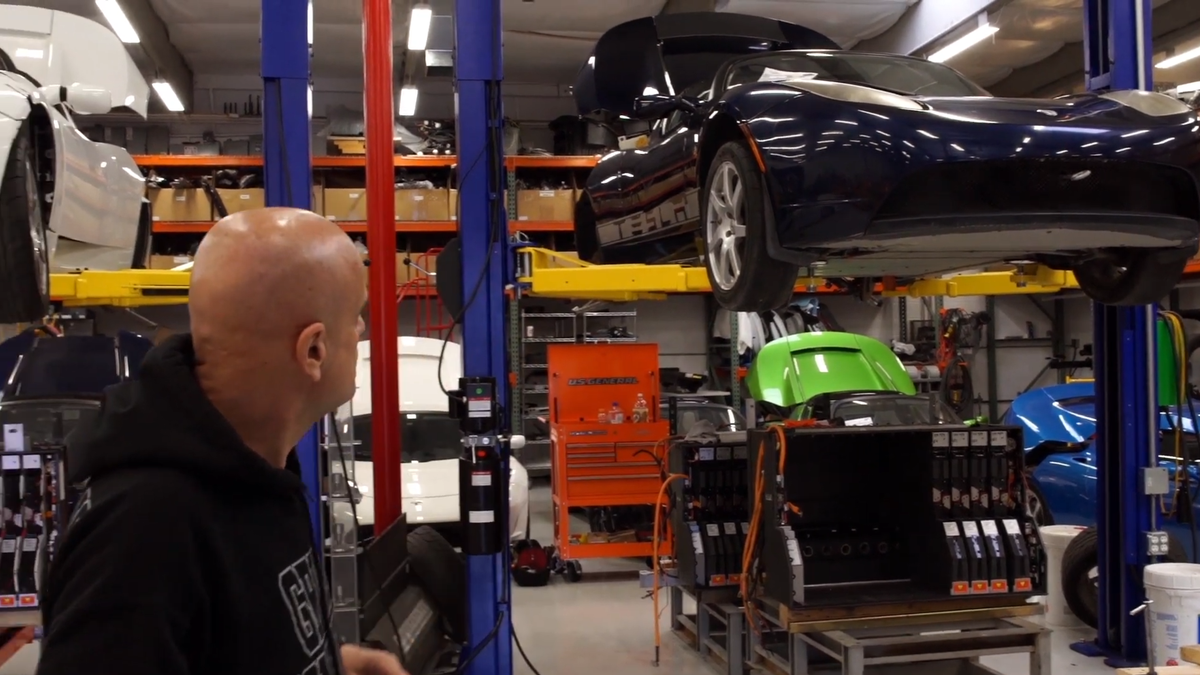When you were a kid and you had a little radio control car that you zoomed around the kitchen floor or built jumps for in the back yard, did you throw it away when the batteries died? For many owners of early electric vehicles from a decade or more ago, that seems to be the answer to electrical issues. If your 2012 Tesla Model S shits the bed, should you throw it to the scrappers, or invest some time and money and get it back on the road? Unfortunately, the demand for mechanics who can take apart the battery pack and repair a dead cell has vastly outstripped supply.
A recent report form NPR affiliate KUOW Puget Sound tracked down a Tesla driver who had to decide what to do with a bricked Model S. Christine Barnes was told by Tesla that the car needed a brand new pack, and it would be around $20,000, more than the car’s value.
“We thought about spending the money just because it was a perfectly good car other than this happening,” Barnes said. “There was nothing wrong with it, and I loved that car. But then, we decided that was just not smart.”
Early EV adopters with cars no longer covered by a warranty of any kind are running into issues with longevity of these complex electric systems. The non-dealership car repair industry has not kept pace with the proliferation of EVs, and as such, there are very few places that can affect the repairs needed to keep these cars on the road. As luck would have it, Barnes found a shop that could do battery repairs to her Tesla, Medlock and Sons, but the shop was so backed up that it would still take years.
“We have like 350-plus appointments for Model S battery repairs, and we just don’t have time to go any faster,” Medlock said.
“Tesla told them it needed a battery, because Tesla only replaces the whole thing. They don’t do component replacement like we do,” he continued. “Any Model S that has been supercharged a lot, early ‘12, ‘13, ‘14, those cars, their batteries are failing,”
Here’s an important segment from the KUOW report:
If there were more technicians trained to work on batteries, the life of older EVs could be extended, said Gary Fantozzi, director of automotive programs at Shoreline Community College. His department trains future mechanics for carmakers like General Motors and Tesla.
“We could start changing out small sections of those batteries that are degrading on us and allow the battery to go longer,” he said.
But Fantozzi said carmakers aren’t particularly motivated to invest in that kind of workforce training, and many of them don’t allow mechanics to work on the batteries at all.
“There’s only a couple of manufacturers out there that actually allow you to get into the batteries and actually do some of the repairs,” he said.
Fantozzi believes that there isn’t much financial incentive for carmakers to work on batteries if customers — faced with the high costs of replacing them — are willing to buy new cars instead.
For a little while I had an old Nissan Leaf that I truly enjoyed driving. It was extremely cheap, though its battery pack had degraded to the point that it could really only do 40 miles on a charge. I had wanted to find a new battery pack for it to increase range, but sourcing a known-good pack was difficult and expensive, and finding a shop to do the work was even more difficult. That car is still on the road, and I hope it remains so for many years to come, but I’m worried about who will do the work when it eventually needs to be done.
If you’re a young mechanic getting into the industry, learn how to safely and reliably repair electric and hybrid vehicles. I’d stake a claim on you having plenty of work to keep you busy for the rest of your life.

